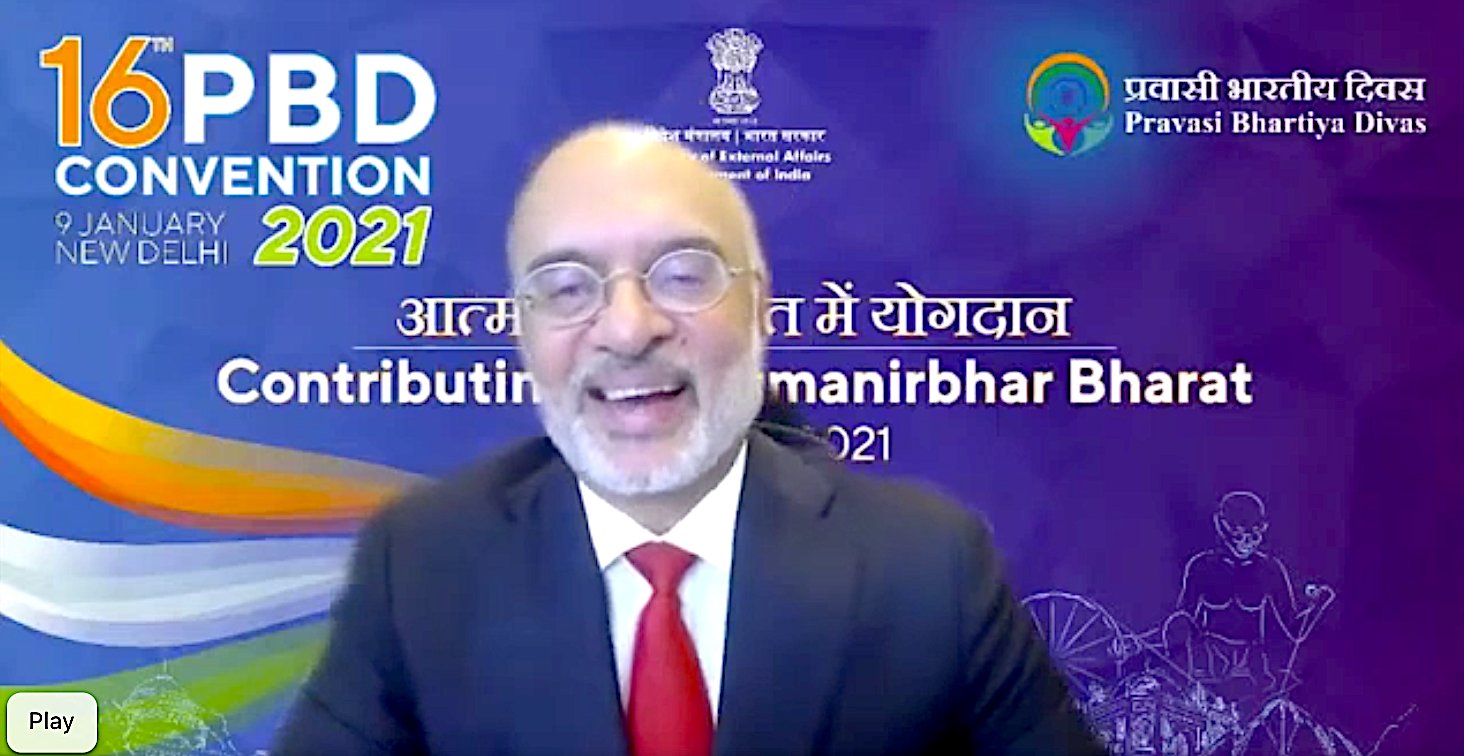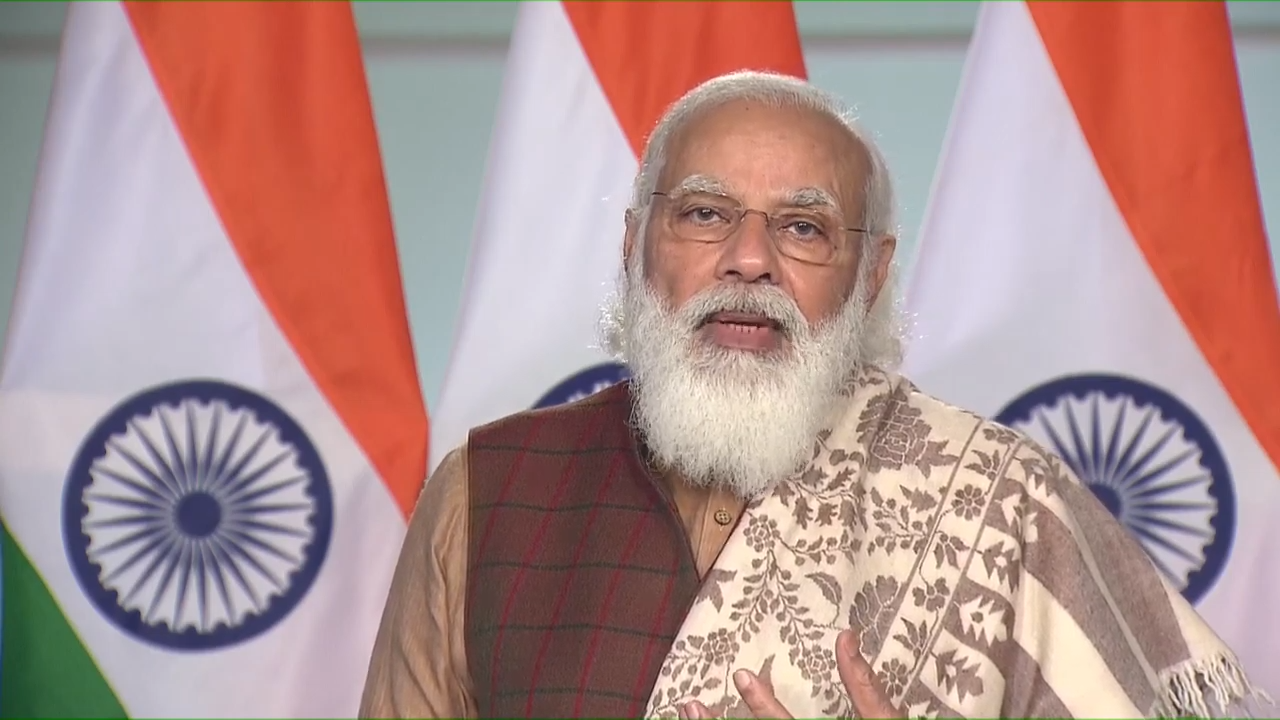“Tensions between us (India) and China are pushing large numbers of multinationals as well as the East Asian companies to rethink their concentrated presence in a single place, which is China,” said DBS CEO Piyush Gupta, speaking during a plenary session at the 16th Pravasi Bharatiya Divas Convention.
The Indian-origin chief executive joined the event virtually from Singapore and spoke on the "Role of Diaspora in Aatma Nirbhar Bharat", alluding to the efforts already made and future plans to expand the Singapore-India business corridor.
The DBS CEO pointed out that India had a large advantage as, even though there were few large financial groups owned by members of the Indian diaspora, many of the largest companies in the world were helmed by Indian-origin CEOs. He said those looking to create a self-reliant India should target these influencers who are responsible for the decisions of large corporates to base and set up production facilities.
He said he was particularly struck by what Indian PM Modi had said during the inaugural address, about how the Indian diaspora had been responsible for stirring up interest in the nation.
“Today, if the whole world has so much trust in India, it is due to the great contribution of all the overseas Indians. You have also been awakening people with Indianness. And you see whether it is food or fashion, family values or business values, you have spread Indianness. I have always believed that if the culture of India has been popular all over the world, it has been possible because of your entity, conduct and behaviour,” the PM had said.
Giving a personal example, Gupta said that the banking sector system in India was relatively undercapitalised and the major source of foreign investment was from firms where the diaspora owned or influenced the capital. “To make it more personal, DBS is one of the only two banks that decided to subsidiarise in India four years ago and it's instructive that the only reason I believe we were is because I run DBS and I'm an Indian-based CEO and I'm comfortable doing so. Most of the foreign banks were unwilling to do that,” he said.
During the course of his address, he highlighted unique megatrends in manufacturing, services, agriculture and the digital sector that have developed over the course of 2020, largely influenced by the COVID-19 pandemic upheaval.
“What the COVID has caused us over the last six months is a dramatic shift in people's thinking on both digital consumption and digital production. Our healthcare, education services, financial services; a whole slew of services are beginning to get consumed digitally at a pace and at a scale that we've not seen before,” he said.
Reflecting on the megatrends, he said this is a seminal moment for the Indian manufacturing sector with the need for resiliency in supply chains through developing multiple supply sources and lines, keeping the reality of geopolitics in mind. He also talked about the East Asian model of bringing in manufacturing firms on a large scale.
“Even in China, they crowded in big companies and created an ecosystem of supply chain-suppliers around those. I think this is an area which can have tremendous benefit for India, particularly now in the context of the shift of the supply chain,” he said.
The second megatrend he talked about was in the services sector.
“People are beginning to get more comfortable with ‘work from anywhere’ now. There are profound implications for India, because the BPO sector and our capacity to do the work of three men away from home is the core which will empower both the capacity to produce digitally anywhere and the capacity to service demand in a whole host of other countries,” Gupta said.
Taking agriculture as the third megatrend, he mentioned that the recent farm laws passed by the Indian government was an attempt to reshape agriculture sourcing and develop broader routes to ensure the uninterrupted supply of agricultural products using innovation and new methods.
He also talked about Indian firms investing abroad, particularly in East Asia, saying that the diaspora had a crucial role to play there as well in facilitating capital flow.
“It is a tremendous opportunity for the diaspora who's very active in the startup ecosystem in East Asia to work with the startup ecosystem in India and make those connections come together,” he said, signing off.




